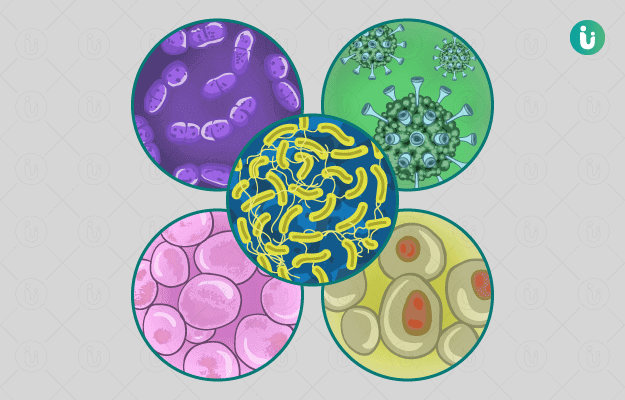What are bacterial infections?
Naturally, present within the body, bacteria do not cause any harm but there are also some other bacteria present outside the body in the environment. These bacteria cause infections on entering the body and are called pathogenic bacteria. In certain circumstances, the internal symbiotic bacteria may also lead to infections in cases of weakened immunity and their overgrowth. The organs that might get infected with bacteria include the lungs, throat, bowel, skin among others. Bacterial infections can spread from an infected individual to a healthy individual. Thus, all the necessary precautions should be taken to maintain personal and community hygiene and prevent the spread of infections.
What are its main signs and symptoms?
The symptoms of bacterial infection differ depending on the affected area and severity of the infection. The common symptoms of a bacterial infection are:
- Cough.
- Fever.
- Headache.
- Chills.
- Sweating.
- Muscle pain.
- Tiredness.
- Difficulty in breathing.
- Pain and discomfort in the affected area.
- Swelling and redness of the affected area.
- Loss of appetite.
What are the main causes?
The common infection-causing bacteria are:
- Streptococcus
- Staphylococcus
- E. coli
- Klebsiella
- Pseudomonas
- Mycobacterium
The following are the factors that may increase the risk of contracting a bacterial infection:
- Cuts and wounds.
- Close contact with an individual with a bacterial infection.
- Consuming contaminated food and water.
- Contact with faeces of an individual with the infection.
- Breathing the droplets exhaled during coughing by an individual with a bacterial infection.
- Indirect contact, such as touching contaminated surfaces.
How is it diagnosed and treated?
The doctor makes the diagnosis in the following manner:
- Taking information about the medical history of the individual.
- Physical examination of the individual.
- Radiographic findings.
- Lab tests like blood and urine tests.
The exact treatment of the bacterial infection depends upon the type of bacteria, and the part affected. Topical, oral, or injectable antibiotic therapy is commonly recommended by the doctor to treat a bacterial infection. Sometimes the doctor has to change the antibiotic if the one previously prescribed does not eliminate the bacteria sufficiently.
(Get online doctor consultation for any health issue)

 Doctors for Bacterial Infections
Doctors for Bacterial Infections  OTC Medicines for Bacterial Infections
OTC Medicines for Bacterial Infections
 Bacterial Infections articles
Bacterial Infections articles News for Bacterial Infections
News for Bacterial Infections








 Dr. Suvansh Raj Nirula
Dr. Suvansh Raj Nirula












